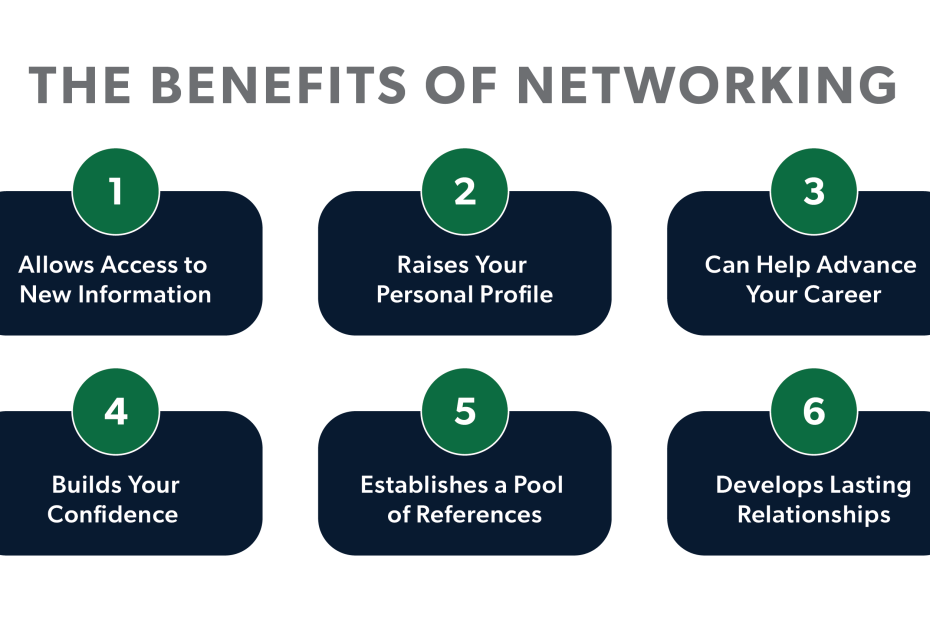In the ever-changing landscape of professional life, one skill remains timeless—networking. Whether you are a fresh graduate stepping into the corporate world, a seasoned professional aiming for leadership, or a business owner seeking expansion, building genuine relationships is often the bridge between where you are and where you want to be. Networking is more than exchanging business cards or adding someone on LinkedIn—it’s about cultivating trust, fostering collaboration, and creating a mutual exchange of value.
Many people mistakenly assume that networking is reserved for extroverts or high-level executives. In reality, it is a tool for everyone—service professionals, entrepreneurs, freelancers, and even those in creative or non-traditional careers. The opportunities you discover through the right connections can be worth more than a dozen cold applications sent into the void of online job portals.
Why Networking Matters
- Access to Hidden Opportunities
A large percentage of job openings are never advertised publicly. They are filled through referrals or internal recommendations. Networking helps you tap into this hidden job market. - Building Credibility
People are more likely to trust and recommend someone they know personally or through a mutual connection. Networking helps you establish your credibility before you even walk into an interview. - Learning from Peers and Mentors
Conversations with experienced professionals can give you insights that no textbook or online course can match. Mentors can guide you in avoiding common mistakes and identifying the smartest career moves. - Strengthening Industry Knowledge
Networking events, professional meetups, and conferences are not just about mingling—they’re about learning trends, challenges, and innovations shaping your industry. - Opening Doors to Partnerships and Collaborations
For entrepreneurs and freelancers, networking is often the lifeline to new projects, collaborations, and clients. A trusted network can help you grow your business without spending heavily on marketing.
Strategies for Effective Networking
- Start with Existing Contacts – Friends, family, classmates, and colleagues form the foundation of your professional network. Reach out, reconnect, and update them about your career goals.
- Leverage Online Platforms – LinkedIn is a powerful tool, but niche platforms and forums related to your industry can also help you connect with like-minded professionals.
- Attend Events—Both Online and Offline – Career fairs, workshops, seminars, and even informal coffee meetups can be opportunities to meet valuable contacts.
- Be Genuinely Interested in Others – Networking is a two-way street. Show interest in the other person’s work, listen actively, and look for ways to help them too.
- Follow Up – After meeting someone, send a thoughtful follow-up message to keep the connection alive.
- Be Consistent, Not Opportunistic – Nurture your network over time instead of only reaching out when you need help.
Avoiding Common Networking Mistakes
- Focusing Only on Self-Promotion – Networking works best when there’s a genuine exchange of value, not just one-sided requests.
- Neglecting Long-Term Relationships – The most fruitful networking happens when you maintain relationships over months and years.
- Not Being Prepared – Have a clear elevator pitch ready, but keep it natural and adaptable for different conversations.
A Real-Life Example: When Networking Made All the Difference
Samantha, a marketing graduate from Chicago, had spent months applying for entry-level jobs with little success. Her applications were often lost in applicant tracking systems, and she began to feel discouraged. One evening, she attended a casual alumni networking event at her university. She met Daniel, a senior brand manager at a leading FMCG company, and they had a relaxed conversation about the future of digital marketing.
Samantha didn’t push for a job immediately; instead, she followed up the next day with a thank-you email and a link to an article related to their conversation. Over the next few months, they exchanged ideas occasionally. When a marketing associate position opened in Daniel’s department, he personally referred Samantha, bypassing the competitive screening process.
Not only did she get the job, but she also found a mentor in Daniel, who continued guiding her career. What could have been months of job hunting turned into a swift breakthrough—all because she built a genuine connection without expecting immediate returns.
Networking is less about luck and more about being intentional, consistent, and authentic in building relationships. Your skills and qualifications open the door, but often, it’s your network that tells you which door to knock on in the first place.
